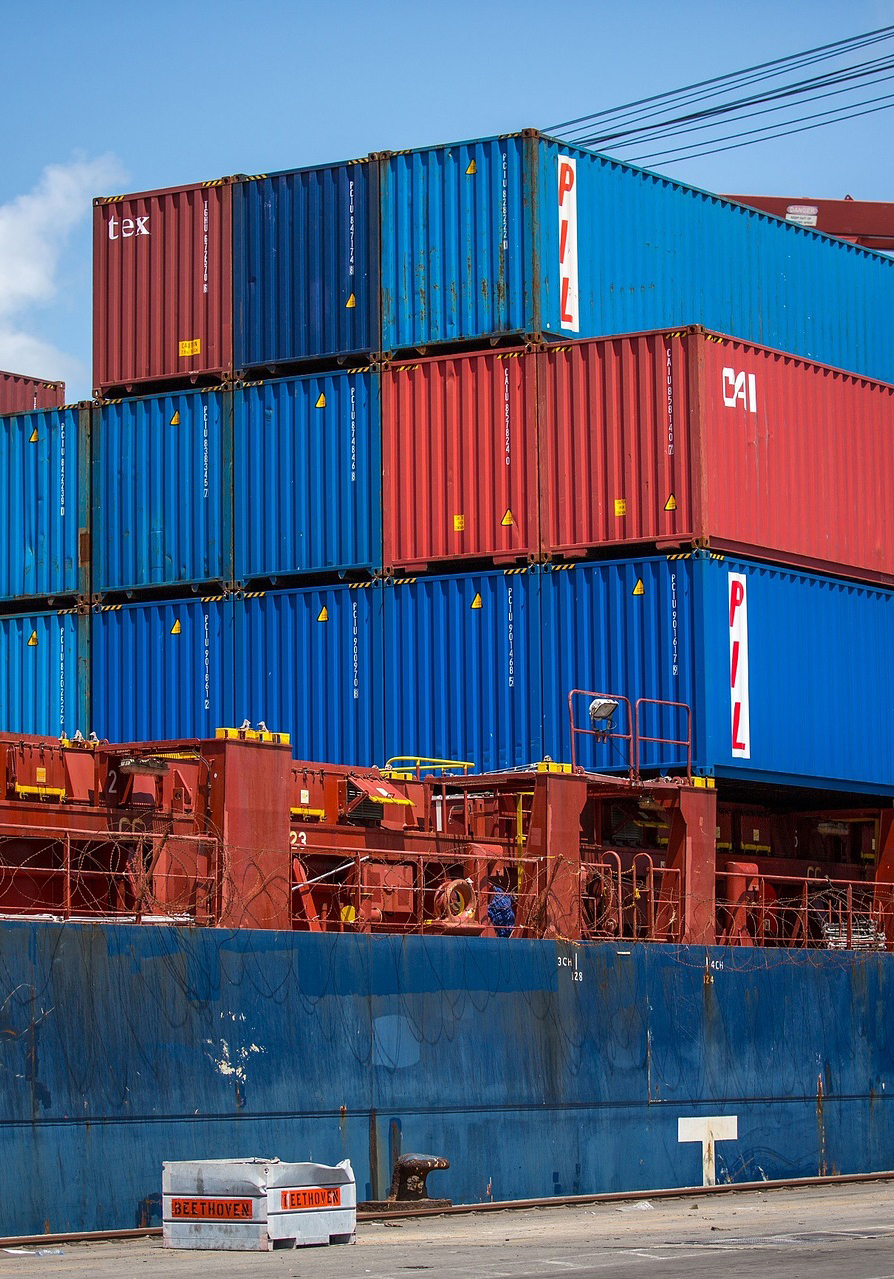கடந்த காலங்களில் அதிகரித்த அளவிலான இயற்கை அனர்த்தங்கள் பதிவு செய்யப்பட்ட போதிலும் இலங்கையில் இயற்கை அனர்த்த காப்பீட்டுத் திட்டங்களின் பாவனை மிகவும் மட்டுப்படுத்தப்பட்ட அளவிலேயே காணப்படுகின்றது. இவ்வகையான அனர்த்தங்களினால் குறிப்பாக சிறிய மற்றும் நடுத்தர வர்த்தகங்கள் (SME) அதிகளவில் பாதிக்ப்படுகின்றன. இலங்கையில் இயற்கை அனர்தக் காப்பீட்டுத் திட்டங்களின் மட்டுப்படுத்தப்பட்ட பாவனைக்கு பல காரணங்கள் செல்வாக்கு செலுத்துகின்ற போதிலும் தகவல்களை இலகுவாகப் பெறமுடியாமை குறிப்பாக சுதேச (சிங்கள மற்றும் தமிழ்) மொழிகளில் பெற முடியாமை ஒரு முக்கிய காரணம் என எமது கொள்கைக் குறிப்பு இணங்கண்டுள்ளது. இயற்கை அனர்த்தம் சம்பந்தமான தனியார் துறையினால் வழங்கப்படும் காப்பீட்டுத் திட்டங்கள் மற்றும் அரச நலன்புரித்திட்டங்;கள் அனைத்தும் அது தொடர்பான தகவல்களை ஆங்கிலத்தில் மாத்திரமே வழங்குகின்றன என்பதை எமது கண்டறிதல்கள் வெளிப்படுத்தியுள்ளது. இயற்கை அனர்த்தங்களினால் பாதிக்ப்படுகின்ற கொழும்பிற்கு வெளியே உள்ள பிரதேசங்களில் ஆங்கில எழுத்தறிவு வீதம் 30% இற்கும் குறைவாக காணப்படும் சந்தர்ப்பத்தில் இத்தகவல்களை சுதேச மொழிகளில் வெளியிடுவதனால் சிறிய மற்றும் நடுத்தர வர்த்தகங்களிற்கு இயற்கை அனர்த்த காப்பீட்டுகளின் பிரதிபலன்களை பெற்றுக்கொள்ளக்கூடிய வாய்ப்புக்களை கணிசமான அளவு அதிகரிக்க முடியும்.
රජයේ ආදායමට ආනයන බදු නිසා සිදුවන සේවය සුලුපටු නොවේග එසේ වුවත් මෙම බදු සාමාන්යයෙන් ඉහල අගයක් ගන්නා අතර තමන්ට අත්යවශ්ය අමුද්රව්ය සහ යන්ත්ර සුත්රගෙන්වීමේ දී එකිනෙකට වෙනස් ආකාර පහක බදු ගෙවීමට සිදුවීම දේශීය ව්යාපාරිකයන්ගේ පිරිවැය ඉහල යාමට හේතු වේග එසේම ඉහල පිරිවැය දේශීය ව්යාපාරිකයන් :විශේෂයෙන්ම සුළු සහ මධ්යම ව්යාපාරිකයන්* නවතම තාක්ෂණ උපකරණ කරා යොමු වීම වැළැක්වීමට හේතු වේග මෙම ගැටලුවට විසඳුමක් ලෙස රජය විසින් ආනයන බදු සහන යෝජනාවලීන් රැසක් හඳුන්වා දී තිබේග එමගින් බලාපොරත්තු වන්නේ ඉහල තාක්ෂණ උපකරණ සහ අමුද්රව්ය වල පිරිවැය පහල දැමීම තුලින්ල ව්යාපාරිකයාගේ කාර්යක්ෂමතාව සහ ඵලදායිතාව ඉහළ දැමීමයිග එසේ වුවත් මෙම විසඳුම ක්රියාත්මක වී ඇත්තේ බලාපොරොත්තු වන ප්රතිලාභ ලබා ගැනීමට ඇති ඉඩ ප්රස්තා ඇහිරෙන ආකාරයට බව වෙරිටේ ආයතයනය කල පර්යේෂණයකින් හෙළි දරවු වේග තෝරාගත් ආනයන බදු සහන යෝජනා වලීන් කිහිපයකට අදාලවන නියාමන වැඩපිළිවෙල එහි සැබෑ ප්රතිලාබීන්ට පමණක් සහන ලබා දීම සහ බදු සහන අවභාවිතය වැලැක්වීම යන මූලික අරමුණු ඉටු කිරීමට බාදාකාරී වන ආකාරයෙන් ක්රියාත්මක වී තිබෙන බව මෙම පර්යේෂණය අනාවරණය කරයිග එසේම මෙම යෝජනාවලීන් හරහා රට තුලට එන භාණ්ඩ පිළිබඳ ප්රකාශිත දත්ත නොමැති විමල එම යෝජනාවල ප්රතිලාබ මෙන්ම එම යෝජනා අවභාවිතය පිළිබඳ තක්සේරුවක් කිරීමට ඇති විශාල බාධාවක් බව මෙම පර්යේෂණය හෙළි කරයිග
Import taxes are critical for government revenue. However, these taxes are often high and prevent businesses from becoming more efficient – businesses sometimes have to pay up to five different taxes when importing essential materials and products. The government has introduced a solution to this problem – import tax exemption schemes. Through these schemes, businesses can bypass certain taxes and save money. Yet, the solution is not as simple as it seems. The current regulatory framework in place for tax exemptions undermines the objective of such schemes – which is to prevent misuse and restrict benefits to eligible parties. Using agricultural equipment as an example, this policy note outlines how the process in place for approving exemptions is (i) opaque; (ii) discretionary; and (iii) prone to abuse.
Verité Research and the World Bank developed a methodology to monitor online proactive disclosure of information, in accordance with the RTI Act. Verité Research then used this methodology to monitor and evaluate the online proactive disclosure of information across 55 public authorities in Sri Lanka. The report found that 20% of public authorities scored in the ‘moderately satisfactory’ band. The majority, 75% of public authorities scored within the ‘moderately unsatisfactory’ band and 5% scored ‘unsatisfactory’. No authority scored ‘satisfactory’ or ‘highly satisfactory’.
Export promotion has been a key policy objective of successive governments of Sri Lanka. The Government aims to double the value of exports to USD 20 billion by 2020. Currently, the government is taking measures to improve the investment climate and ease the bureaucratic burden for the private sector; investors and businesses. One such bureaucratic hindrance is the export registration process. This policy note finds that although the current registration process was introduced with the intention of identifying and supporting new exporters, its execution severely impedes the achievement of this goal.
අපනයනය කරන්නට සිතන ව්යාපාරිකයන් අපනයනකරුවෙකු ලෙස ලියාපදිංචි වීම ලංකාවේ නීතිය යටතේ අනිවාර්ය වේ. ඒක පුද්ගල සහ හවුල් ව්යාපාරිකයන්ට අදාළ ලියාපදිංචි වීමේ ක්රියාවලිය අනවශ්ය ලෙස දීර්ඝ, අකාර්යක්ෂම සහ දුෂ්කර එකක් බව වෙරිටේ පර්යේෂණ ආයතනය කල අධ්යනයකින් හෙළි දරවු විය. වත්මන් ක්රියාවලිය අවම වශයෙන් පියවර 10කින් සමන්විත වන අතර, විවධ රාජ්ය ආයතන 6ක් ඊට සම්බන්ධ වේ. මේ සඳහා සති 1-3ක කාලයක් ගත විය හැක. අපනයන බලපත්ර අවැසි භාණ්ඩ අපනයනය කරන්නට සිතන ව්යාපාරිකයන්ට සිය ලියාපන්දිචිය සම්පුර්ණ කිරීමට මීට අමතරව තවත් සති කිහිපයක් වැය කරන්නට සිදු වේ. නව අපනයනකරුවන් හඳුනා ගෙන ඔවුනට අත්වැලක් සැපයීමේ අරමුණින් හඳුන්වා දී ඇති මෙම අනිවාර්ය ලියාපදිංචිය, ක්රියාත්මක වී ඇත්තේ එම අරමුණට පටහැනි ආකාරයෙනි. දේශීය ව්යාපාරිකයන් අපනයනය සඳහා දිරි ගැන්වීමට නම් මෙම ක්රියාවලිය සරල, කෙටි සහ තර්කාන්විත එකක් බවට පත් කිරීම ඉතා වැදගත්ය.
There are three false claims that have been prevalent in print media, in relation to the tax and price increases of cigarettes in the last quarter of 2016. The claims were that (i) tax revenue reduced, (ii) beedi consumption increased, and (iii) CTC lost economic value. The Insight provides analysis that contests all three claims.
Sri Lanka is a signatory to the International Treaty, Framework Convention on Tobacco Control since 2003. It has not yet implemented the provisions relating to protecting tobacco policy from vested interests. This Insight explores the consequences of not doing so and meaningful steps that can be taken towards mitigating the influence of vested interests.
Analysis of past tax and price data reveals two aspects of cigarette pricing that are hidden from media reporting: first, net-of-tax price grew at a faster rate than the tax per cigarette; second, that the government’s tax share of the cigarette price has fallen over time.
Sri Lanka and China decided to enter into a Free Trade Agreement (FTA) in August 2013 to further expand trade between the two countries. Technical negotiations, which officially commenced in September 2014, are still underway with five rounds of negotiations having been concluded. China is the world’s second largest economy, its largest exporter and its second largest importer. For a small market economy like Sri Lanka, an agreement with a country such as China presents exciting opportunities as well as daunting challenges. This briefing note provides an assessment of the challenges and opportunities that Sri Lanka is likely to face in operating under an FTA with China. Potential challenges and opportunities have been identified by analysing the key features of China’s existing FTAs with other countries.







